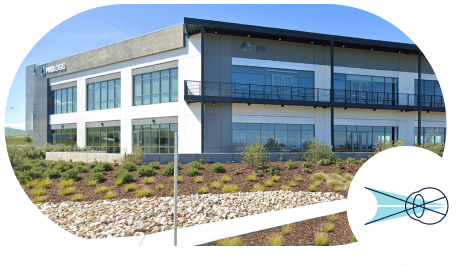The Connection Between Age-Related Macular Degeneration and Diet

Which of the following menu items has been shown to support eye and vision health?
A. A colorful spinach salad
B. Grilled mackerel with lemon
C. Whole grain pasta with olive oil
D. All of the above
If you answered “D,” you’re correct! All of the items listed above are part of a vision-boosting diet, one that may defend your eyes from age-related macular degeneration (AMD).
In recent years, the global incidence of AMD has skyrocketed, creating an alarming reality of impending vision loss for many. While AMD can’t always be avoided, some lifestyle habits can potentially prevent it from occurring or at least slow down its progression. One of the most important things you can do for your eyes and general health is to consume a healthy diet.
Foods to Avoid for Age-Related Macular Degeneration
Whether you’ve already been diagnosed with AMD or are at risk, avoiding certain foods can play a key role in fighting against the condition. For example, it’s often recommended to eat less or avoid foods with refined, processed carbohydrates, like those made with white flour. These foods have a high glycemic index, which means they’re more likely to increase inflammation and blood glucose. Eating these foods may promote early-onset macular degeneration and its progression.
You’ll also want to limit your high-cholesterol food intake with AMD, as these foods can contribute to the retina’s degeneration, stealing your central vision. Along these lines, you should also avoid foods high in trans fats, as they can increase low-density lipoprotein (LDL or “bad”) cholesterol while decreasing high-density lipoprotein (HDL or “good”) cholesterol. Instead, consume healthier monounsaturated fatty acids, such as olive oil, or polyunsaturated fatty acids, like vegetable oil.
Setting the Table for an AMD-Friendly Meal
No matter your vision status, there’s no better time than now to improve your vision and general health by incorporating healthy foods into your diet. Selecting the best foods for an AMD-preventive diet may be overwhelming, but it can also be quite delicious and fun. Take, for example, the Mediterranean diet, which is associated with valuable benefits for AMD, as well as vision conditions associated with diabetes, like diabetic retinopathy. In addition to its health benefits, the Mediterranean diet is also known for its alluring flavors and satisfying meals. Typical foods in the Mediterranean diet include:
- Lean proteins
- Fatty fish, like salmon, mackerel, and sardines
- Vegetables, especially dark leafy greens like spinach or kale
- Colorful fruits, especially citrus fruits like oranges
Together, these foods deliver sufficient antioxidants, nutrients that defend the body, including the retina and other eye structures, from unstable molecules called free radicals. When accumulated, free radicals cause oxidative stress, cellular damage, and increased inflammation, raising your risk of developing chronic diseases. Other dietary guidelines of the Mediterranean diet include eating nuts, seeds, and whole grains while limiting dairy and red meat. Also, instead of relying on salt to enhance flavor, experiment more with herbs and spices to lower your sodium intake.
Don’t Neglect Regular Eye Exams With AMD
Even if following a healthy diet, if at risk or living with AMD, be sure to have a comprehensive dilated eye exam at least once a year. This is your retina specialist’s best opportunity to detect AMD in its earliest stages, when treatment may be more likely to succeed, helping to preserve your existing vision.
Recognize the Benefits of a Proper Diet for AMD
Consuming a healthy diet may be one of the most effective preventive steps to slow age-related macular degeneration progression. You and your retina specialist should discuss foods to adopt or avoid as well as other retinal health measures. If you’d like to schedule an AMD exam in Northern or Central California, contact Retinal Consultants Medical Group today.


